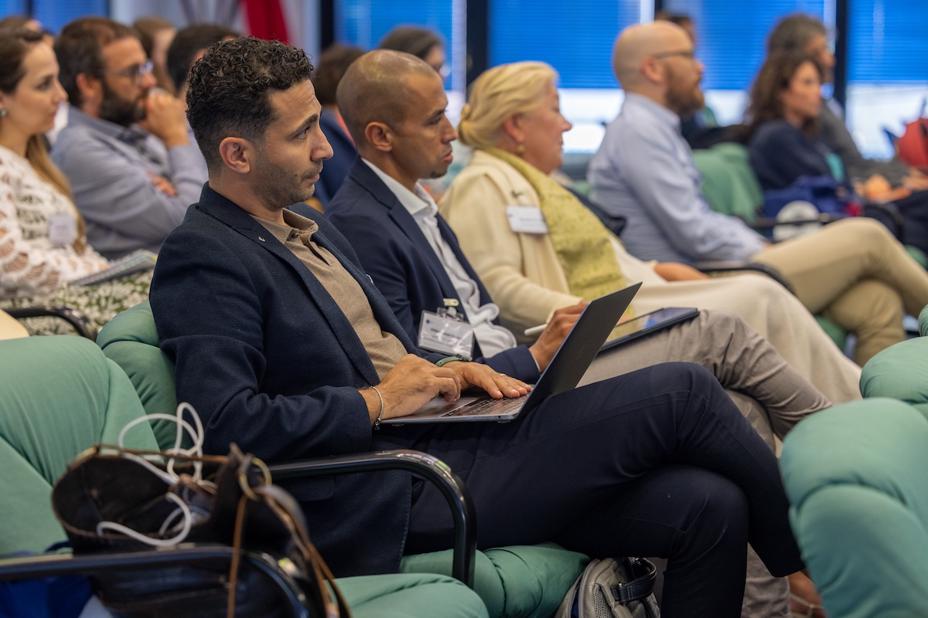
Something went Wrong
Try entering your email again or contact us at support@qfi.org
Try entering your email again or contact us at support@qfi.org
You’ll receive an email with a confirmation link soon.
Jul 8, 2025
Coventry, UK (June 2025) – Qatar Foundation International (QFI) participated in the British Association of Teachers of Arabic (BATA) 5th Annual International Conference, held at the University of Warwick from 26–27 June. The conference brought together teachers, students, and research scholars of Arabic language, culture, literature, linguistics, and translation from across the UK and beyond. It served as a platform for sharing ideas, best practices, and research, while fostering collaboration among educators, researchers, and students in the field of Arabic studies.
The conference welcomed submissions across several key areas, including Teaching Arabic and Culture, Arabic Translation, Arabic Literature and Literary Criticism, and Arabic Linguistics. As a leader in Arabic language education in schools, QFI participated as both a presenter and supporter of Arabic language educators attending the event.
QFI’s contributions focused on Arabic learning in classrooms, immersion strategies, and student motivation. Tony Calderbank, QFI’s United Kingdom Consultant, presented on “Short-Term Duration Immersion Programming for Arabic Language Motivation,” highlighting the Arabic Summer Immersion Program for UK secondary school students, which has been held at Warwick University, Northumbria University, and this year is being hosted and fully run by Durham University in the UK. This program, designed for Arabic beginners, heritage learners, and GCSE candidates, offers accelerated exposure to Arabic through immersive activities. Using the July 2024 program at Northumbria University as a case study, Calderbank’s presentation drew on pre- and post-program student surveys to assess impact and offered recommendations for replicating the model across the UK including the benefits to UK universities and their Arabic Departments.
“Our goal is to make Arabic more accessible and engaging for students across the UK, which can in turn benefit and strengthen university Arabic Departments,” stated Tony Calderbank. “The immersion program shows that even short-term experiences can have a lasting impact on motivation and language acquisition, which can lead to further Arabic study at the university level.”
Janine Elya, Research Officer at Qatar Foundation International, presented on “Arabic GCSE and Lack of Alignment with Arabic as a Global Language.” Her presentation examined the disconnect between the Arabic GCSE exam specification and best practices in modern language instruction. She contextualized the Arabic GCSE alongside other language exams and addressed concerns raised by Arabic educators in England. She concluded with proposed recommendations for updating the exam’s structure, content, and related policies to make the Arabic GCSE more accessible and relevant to a diverse range of learners.
“Arabic is a living, global language, yet the current GCSE specification doesn’t reflect that reality,” said Janine Elya. “Since the GCSE is the only qualification available to non-heritage Arabic learners in the United Kingdom, accessibility issues can significantly disadvantage these students in both exam performance and future academic opportunities. We must continue to advocate for Arabic assessments that serve all types of learners. The GCSE materials should also be regularly updated to ensure the content resonates with today’s students and prepares them for real-world language use beyond the classroom.”
About Qatar Foundation International
Qatar Foundation International (QFI), based in Washington, DC, is dedicated to advancing the value of teaching and learning Arabic as a global language.

